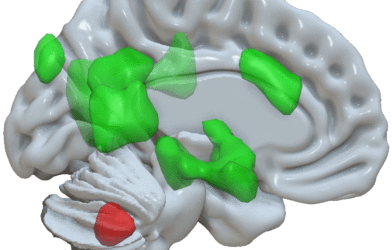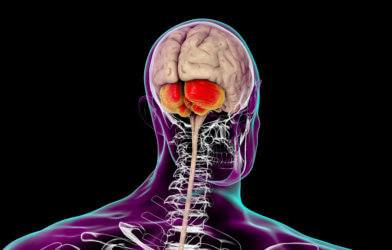Control of how rapidly neurons (nerve cells) in the brain proliferate (increase in number) is a fundamental feature of brain health and disease. It’s an important parameter of proper brain development. Abnormally rapid neuron proliferation is a feature of aggressive brain tumors. The work of McGill University scientists is showing, for the first time, impressive evidence that a single gene controls human brain cell growth.
It has been thought that the control of brain growth involves a vast and complex network of molecules and processes, although specifics about such a network have been more mysterious than not. Such a lack of knowledge interferes with identifying abnormal development or the presence of disease. It obscures points at which intervention in disease could be effective and obscures the type of interventions which potentially could be beneficial.
Carl Ernst, an associate professor in the Department of Psychiatry at McGill, and his team of researchers found that in patients with severe microcephaly there is loss of the FOXG1 gene in brain cells. Loss of the gene reduces brain cell proliferation. Using genetic engineering techniques, the scientists introduced and activated the FOXG1 in cells from a microcephaly patient. Different levels of activation showed corresponding increases in brain cell proliferation.
This research indicates that a single gene could potentially be targeted to stop brain tumor cells from growing. Future gene therapy may involve this same gene to be activated in patients with microcephaly or other neurodevelopmental disorders.
The study is published in the open access journal Stem Cell Reports.












